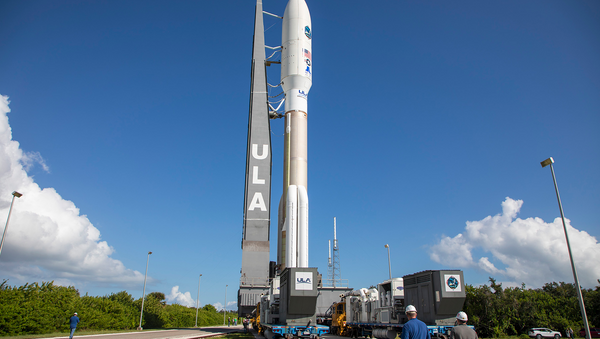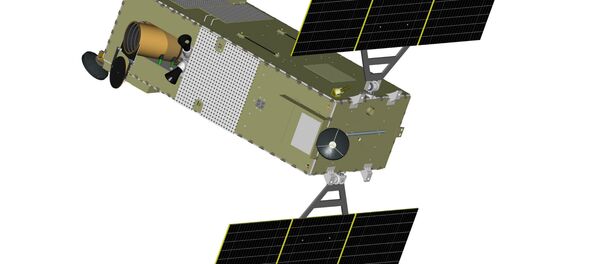Meanwhile, a strategy for a more aggressive space-based missile defence system was rolled out in Washington on Thursday. According to the document, the Pentagon must expand defence technology in space to quickly detect, track and defeat incoming missiles as North Korean and Iranian missiles "remain a significant concern". The strategy also aims counter advanced weapons systems in Russia and China.
Radio Sputnik discussed Washington's intention to withdraw from the INF Treaty with Tom Sauer, professor in international politics at the University of Antwerp, Belgium.
Sputnik: To what extent do Washington's plans for a space-based missile defence ruin the strategic balance of power in the world?
Tom Sauer: Well let me first say that space-based missile defence systems are not a good idea because it's destabilising, it's not needed and it's very costly. It would lead to another defensive, offensive arms race between the United States and Russia and China, and this time in space. Now to be clear, the Trump administration, with its recent Missile Defence Review has nothing decided yet on space-based weapons systems. They only commenced studies for space-based missile defence and they leave out space-based laser systems, it's not ideal, it's always been regarded as too difficult and that may turn out nowadays to be the case as well.
READ MORE: US Missile Defence Strategy May Trigger Arms Race, Undermine Stability — Beijing
Particle beams in space, ray guns in space and even orbiting interceptors in space, that's the most controversial idea, and that all fits with Trump's idea of creating a separate space force, but just as that idea got opposition from the DoD, from the Pentagon, this time also it seems that Trump has lost again and the DoD has been able to moderate the plans for space-based missile defence. Again, the Review does not call for developing, let alone producing or deploying space-based missile defence systems, it is just an idea of a study, of course, if these studies would recommence going further, that would be destabilising, of course, and very costly.
Sputnik: If the project is implemented, do you think China and Russia would follow suit and create their own space-based missile defence systems?
Tom Sauer: Yes, of course. This has always been the case, if one of these regional or superpowers introduce a new weapons system, then the others follow, either by creating the same systems, offensive systems, or creating defensive systems that can neutralise the new offensive systems of the enemy.
Sputnik: According to the Pentagon, these technologies in space will quickly detect, track and defeat incoming missiles as North Korean and Iranian missiles remain a significant concern. Do you think there's appetite in Pyongyang or Tehran for a military conflict in with the United States?
Sputnik: Professor, changing the topic, how much would America's withdrawal from the INF treaty damage European security and what could be the consequences of this withdrawal?
Tom Sauer: The United States has accused Russia of having violated the INF treaty. The INF treaty is the treaty that eliminated the shorter-Range and intermediate-range nuclear forces that have been installed in Europe, both on the Soviet side (at that time) and the Western side, we're talking about the 70s and the 80s. Now the Unites States has accused Russia of having violated that treaty, but Russia has always denied it and publicly we haven't seen any evidence. The United States now wants to withdraw from the treaty unilaterally, just as they have withdrawn unilaterally from the Iran deal and from the ABM treaty in the past, and that of course is very bad for Europe. Europe has now asked the United States to wait at least for two months, that means until 2 February. Recently both the United States and Russia sat together to talk about it, but without success.
READ MORE: Saudi Arabia to Get US THAAD Missile System as Trump Defends Defence Deal
So in all likelihood, the United States will formally announce the withdrawal from the treaty, the INF treaty, in the beginning of February and then the six-month period starts ticking, and so from the summer onwards the United States will regard the INF treaty as void and probably Russia will follow, and we won't have the INF treaty anymore, so that's not good for Europe. These were missiles that were meant to be installed in Europe and the chances are real that the Unites States will ask Europe, especially the NATO member states in Europe, to install these kind of weapons systems again, just like in the 1980s and a new arms race may follow.




